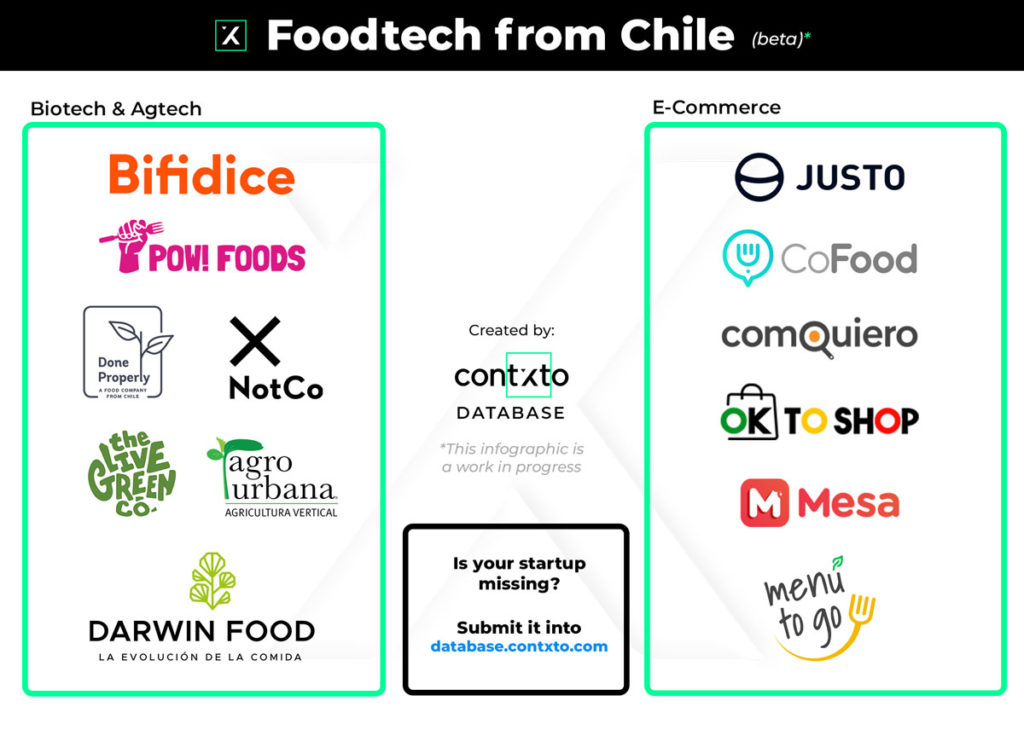
Por Alejandro González Ormerod
July 28, 2020
Contxto – Readers of this site will by now know that more than a few of us are fans of Chile’s preeminent foodtech, NotCo. But there is a good reason for why the company was born in Chile. Foodtech in Chile has a leg up on a lot of the competition.
Remember, foodtech isn’t your run of the mill produce company. These are startups digging deep into what makes food, food. Often they do this all the way down to the molecular level. Other times, they create products from unimaginable sources and in strange places.
All of this takes more than a standard kitchen garden. It takes science, tech, investment, and business know-how to launch a footech operation. And in this sense, Chile is perfectly placed to compete.
The country has a vast innovative agricultural tradition. From their rugged cattle ranchers, to the mass production of high-quality wines, to native Mapuche and even Inca roots.
Chile then combines this history with a strong institutional bent towards stimulating investment, innovation, and entrepreneurship. Indeed, Corfo—Chile’s government department innovation and entrepreneurship—is not far off from any of these footech ventures.

Though not the same thing, biotech and agtech, both similarly involve the process of food creation through non-traditional or alternative bio-processes.
Some of these foodtechs opt to maximize efficiency, others look to better flavors, and others want to make tasty food healthier. This last case applies to Bifidice, a homemade ice cream that boosts folk’s immune system by adding healthy bifidum bacteria.
Then, of course, there’s The Not Company. The company famously uses Artificial Intelligence (AI) to replicate the tastes and textures of animal products using only plant-based ingredients.
But, they aren’t alone in their use of AI to rejig foods to make them better. Just look at The Live Green Co. They look to replace synthetic ingredients from food replacing them with healthier, natural substitutes.
Neither are NotCo’s the only plant-based meats in town. Indeed, foodtech POW! Foods specializes in vegan chorizo. Talk about fusing tradition with innovation.
Oftentimes, the problem with food is that it is grown in remote parts of the world, far from urbanized centers. This is why distribution and e-commerce are essential pillars to the food and agrotech sectors.
Foodtech and logistics fuse in marketplaces that allow you to access healthier foods, get them delivered to your home, or even to make restaurant reservations.
They also reduce waste. This is what CoFood does, allowing grocers to publish food products that are close to expiration. They then get sold at discounted prices, so that app users can buy them.
However, there is no doubt that these e-commerce platforms will have to adapt to a new emergent reality: High-density, urban farming. One of the exponents of this new format of cultivation is none other than the Chilean vertical farming pioneers of AgroUrbana.
Related articles: Tech and startups from Chile!
-AG

Por Contxto
July 29, 2024

Por Contxto
July 18, 2024